Brexit: Significant change to NI Protocol promised, says Poots
- Published
- comments
Edwin Poots says the EU has "behaved despicably" towards Northern Ireland
The UK government has "promised that there will be a significant win" on the Northern Ireland Protocol, outgoing Democratic Unionist Party (DUP) leader Edwin Poots has said.
He told BBC News NI he had "received assurances" from Northern Ireland Secretary Brandon Lewis and that they could emerge in early July.
Mr Poots said "we haven't got detail" of the changes but was told they would be "very significant".
He will quit as DUP leader within days.
The protocol is part of the UK-EU Brexit deal which keeps Northern Ireland aligned to the EU single market to ensure the free movement of goods across the Irish border.
It has been criticised by unionists because it has led to additional checks and delays on trade between Great Britain and Northern Ireland.
'Nothing off the table'
Some aspects of the protocol, such as restrictions on the movement of fresh sausages and chilled meats, have been mitigated by so-called grace periods which could end in July.
The EU is considering a UK request for the ban to be postponed until October.
The BBC understands that Tesco and two other major supermarkets are now sourcing almost all their sausages locally for sale in Northern Ireland.
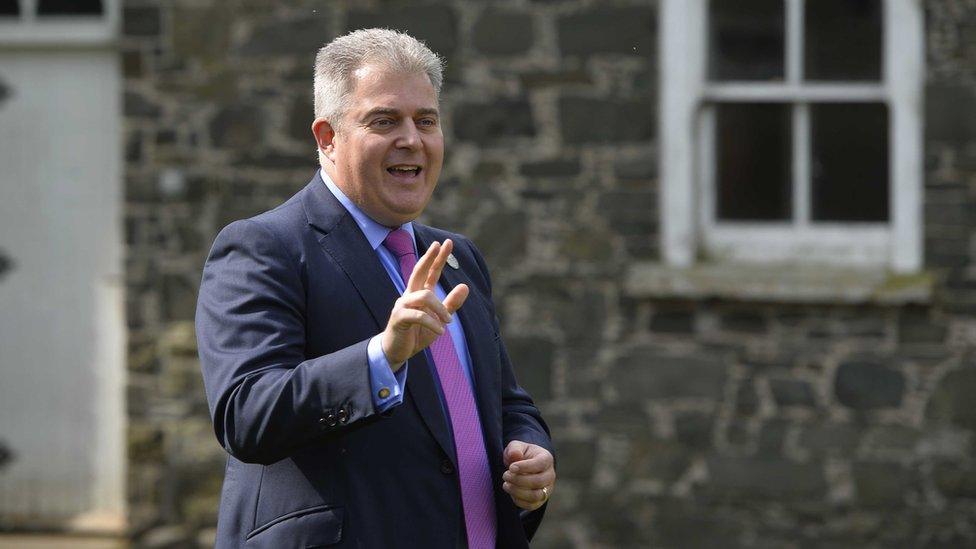
Brandon Lewis says the government is taking "nothing off the table" in talks about the protocol
Speaking after Mr Poots made his comment about the promised "significant" changes, Mr Lewis repeated his view that the government "will do what we need to do" in managing the protocol.
But he did not specifically address Mr Poots' suggestion.
He was asked about the remarks during a debate in the Commons on Tuesday afternoon.
He said he was conscious of challenges for consumers and businesses posed by the protocol and that the government would "not allow that to continue".
"We want to get this corrected so that consumers and businesses can continue to function as a full and integral part of the UK," he added.
"We take nothing off the table in that regard... but we want to work this through with the EU."


UK and EU officials have been engaged in months of technical talks aimed at simplifying the operation of the protocol.
But the UK's Brexit Minster Lord Frost has said those negotiations have made little progress.
So short of an unexpected breakthrough there what "significant win" could the Northern Ireland secretary have promised?
It is possible that the UK could take further unilateral action.
The government has not ruled out using Article 16, which allows parts of the protocol to be temporarily suspended.
But using that mechanism would mean a fresh crisis in the broader UK-EU relationship.

'Making actual progress'
Last week Mr Poots announced he would resign from the top job after just 21 days.
Sir Jeffrey Donaldson, who stood against Mr Poots in the party's first leadership contest last month, has confirmed his second bid for the leadership.
Nominations closed at midday on Tuesday and Sir Jeffrey is the only candidate to succeed Mr Poots.
BBC News NI looks back at the six weeks that led to Edwin Poots being elected and then resigning as leader of the DUP
Sir Jeffrey has warned that Northern Ireland's power-sharing executive could be at risk if the UK government fails to take "decisive action" over the protocol.
On Tuesday Mr Poots said such threats would not work and have "demonstrated failure in the past".
Mr Poots explained how, as a "young loyalist", he attended street protests about the Anglo-Irish Agreement in the 1980s but cautioned that it "didn't make any difference whatsoever".
He said he hoped that when he hands over to a new leader at the end of June most of the work on the protocol "will already be achieved".
"I can see we are making actual progress on making those arguments," he said.
'Made the right choices'
Mr Poots, who succeeded Arlene Foster in May after an internal DUP revolt, said he did not choose to stand for the leadership until others approached him.
After his own "bruising" ousting from the position, he said his "focus isn't on engaging on infighting".
"I would like to think that I am a better man than to continue some sort of infighting because I think there is a bigger prize out there for the people of Northern Ireland," he told BBC News NI's Good Morning Ulster programme.
The decision by Mr Poots to stand down followed a row about his decision to nominate Paul Givan as first minister.
Mr Poots had agreed a deal that both the DUP and Sinn Féin would nominate first and deputy first ministers after Sinn Féin received commitments on legislation for Irish language provisions.
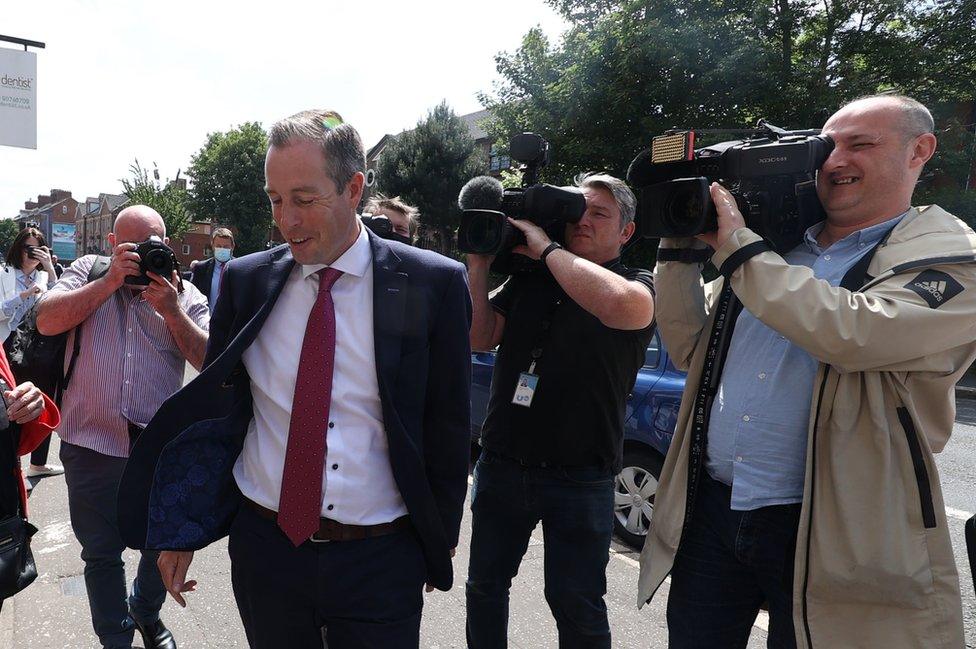
Paul Givan became Northern Ireland first minister last week but his future in the role is already in doubt
A majority of DUP MPs and MLAs - 24 to 4 - wanted to delay the nomination process.
Reflecting on the move, Mr Poots said most of his decisions would be shown to be "good ones" with the "benefit of history".
"People will say that I had made the right choices in actually ensuring that we could continue to fight the protocol issue, the big constitutional issue of the day as opposed to closing the assembly down over a much narrower issue," he explained.
The outgoing DUP leader, who is the Stormont agriculture minister and has been a Lagan Valley MLA since 1998, told Sky News that he regretted the brevity of his leadership.
"Essentially, there was a section in the party that struggled to accept that I won the election, that I won democratically, I won it fairly, and that's how things are now, that I've been forced into a resignation," he said.
"But that's life."
- Published18 June 2021
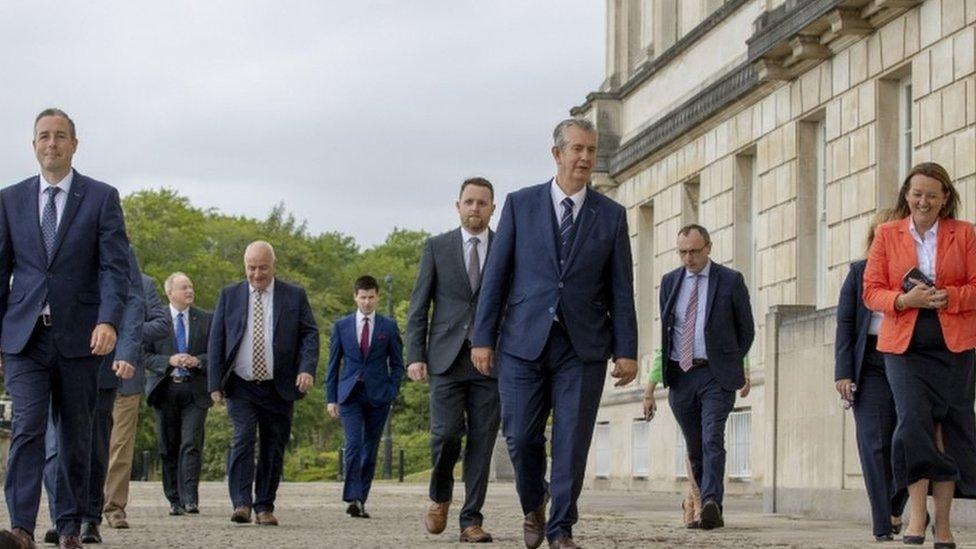
- Published18 June 2021
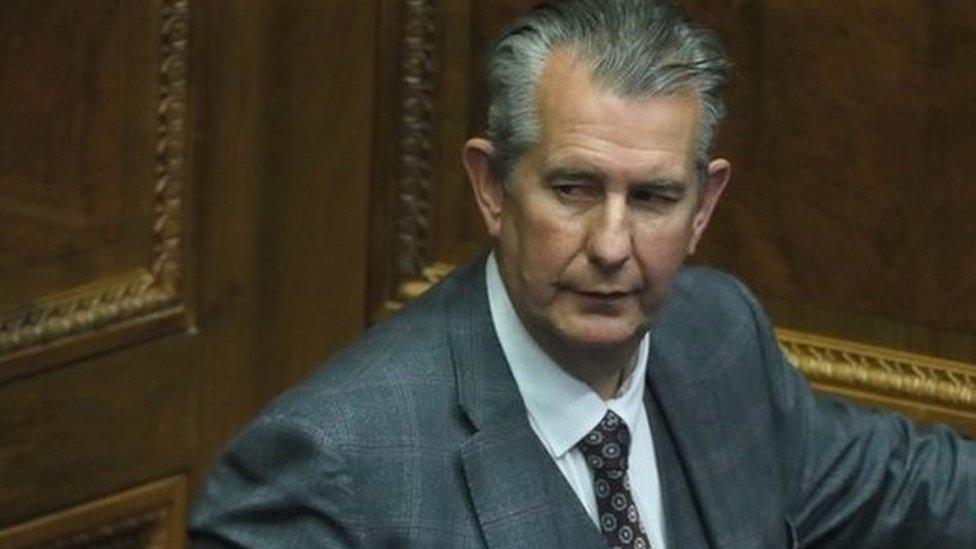
- Published21 June 2021
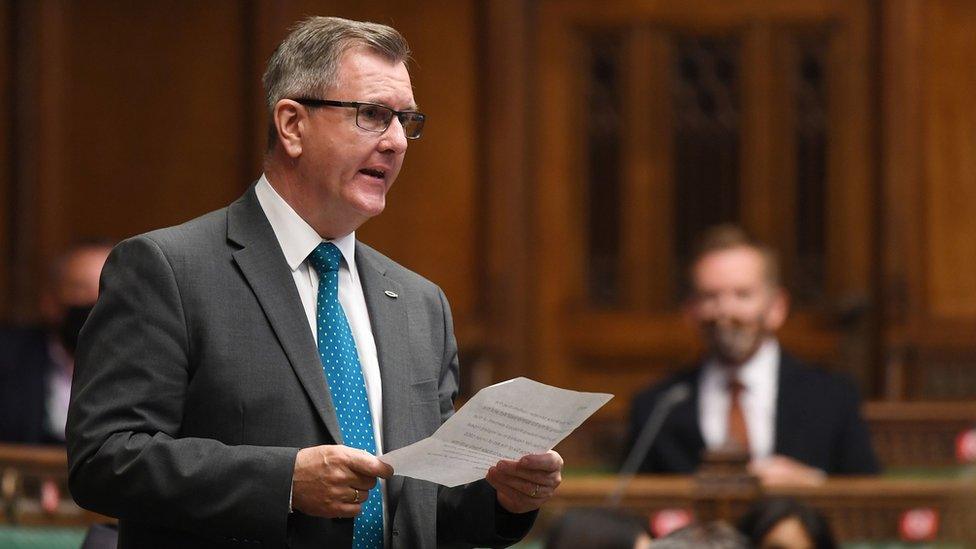
- Published18 June 2021
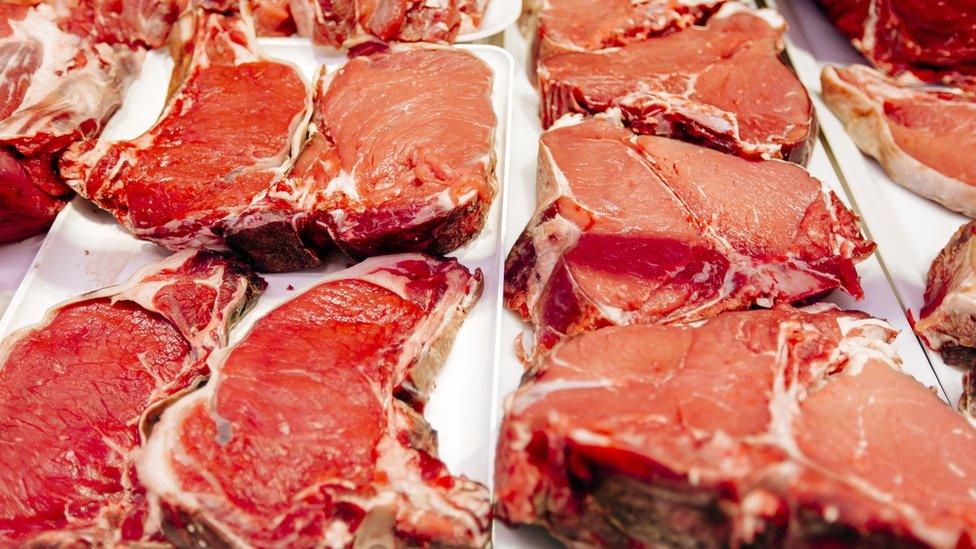
- Published2 July 2021
